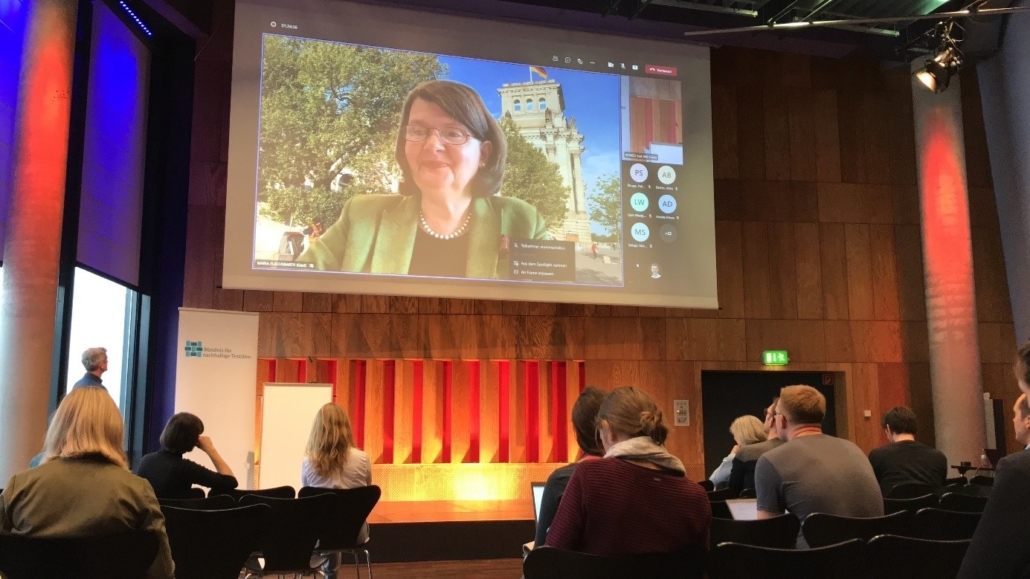Working Meeting 2021
Finally a meeting in presence again, get in contact with others and see old acquaintances again!
In his welcome note, Jürgen Janssen, head of the Partnership's secretariat, spoke about experiences and expectations in this year's Review Process. As a result of the adaptation based on the recommendations of the OECD, corporate due diligence obligations are at the core of the consideration. The purpose of the Review Process is for companies to demonstrate how they are fulfilling their individual responsibilities and to receive structured support in this regard.
A central aspect of this is the change in perspective when considering risks. Whereas previously the focus was primarily on economic risks for the company itself, now it is more a question of what risks the company's own business activities cause for stakeholders in the supply chain and for the environment.
In addition, it would be necessary to see how well the Review Process in the Textiles Partnership was in line with regulatory requirements such as the Act on Corporate Due Diligence Obligations in Supply Chains, which was passed in June. Consultations with the German Federal Office for Economic Affairs and Export Control (BAFA), which is responsible for the review, are one of the things to be done. Nevertheless, Janssen is already certain: "The Review Process is a good basis to be compliant with future requirements."

Dr. Maria Flachsbarth, Parliamentary State Secretary to the Federal Minister for Economic Cooperation and Development, was present from Berlin. She also spoke about the Review Process, which is particularly challenging for companies during the pandemic and global crisis: "I am very pleased that many of you have taken on this challenging review. The Review Process provides transparency and commitment and is a quality control. You are taking a courageous step forward and showing that you not only want to take responsibility, but are ultimately doing so in a verifiable manner. For this, I have great respect and many thanks. I am convinced that your efforts are worthwhile."
At the end of the legislative term, she also expressed her thanks for the good cooperation in recent years and emphasized how important it is for politics, business and civil society to work together. Because only together could we succeed in banishing unacceptable conditions such as low wages, child labor and environmental harm: "If the PST didn't exist, we would have to invent it. And if we hadn't invented it in 2014, we wouldn't be where we are today. We have made good progress with each other, recognized the necessities and signs of the times, and are therefore further ahead in the textile sector than in other industries."
As in previous years, members worked on Partnership topics at this Working Meeting. The agenda included workshops on gender-based violence, climate protection, purchasing practices, supply chain transparency and sustainable public procurement.
There was also great interest in the panel with Jorge Conesa (Policy Manager at Fair Trade Advocacy Office) and Baptiste Carriere-Pradal (Chair of the Policy Hub) on developments at EU level. The two experts addressed, among other things, the EU Textiles Strategy, which aims to strengthen competitiveness and innovation in the textile and garment sector, boost the EU market for sustainable and recyclable textiles, push back fast fashion and promote new business models. This is to be achieved through a series of measures, including a sustainable products initiative and extended producer responsibility.
The discussion on binding requirements regarding corporate due diligence also came up. A possible due diligence law at EU level would require companies to take action to address their negative impacts on sustainability in their own operations and in their value chain by identifying relevant risks, taking preventive measures and mitigating negative impacts.
Textiles Partnership members can find the follow-up documents (minutes, workshop recordings, photos) in the closed members' area.









